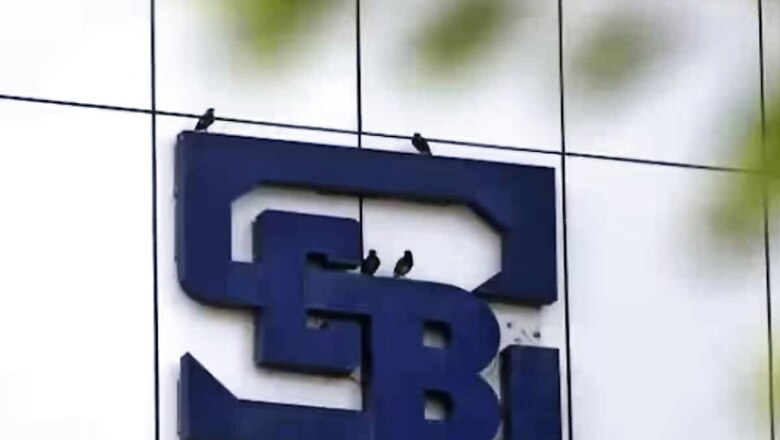
views
Markets regulator Sebi on Thursday came out with a standard approach for valuing the investment portfolio of Alternate Investment Funds (AIFs) along with modalities for launching liquidation schemes, a move that will benefit investors. In addition, all schemes of AIFs will have to be issued in dematerialised (demat) form, the Securities and Exchange Board of India (Sebi) said in three separate circulars.
Existing AIFs with a corpus of more than Rs 500 crore and any new AIFs are required to dematerialise their units by October 31, 2023, and after this, issuance of units will be done in demat form. Other AIFs with a corpus of less than or equal to Rs 500 crore are required to dematerialise their units by April 30 next year.
Also Read: Sebi Proposes Standard Format On Trading Preference For Different Exchanges
Under the standardised approach to valuation, Sebi said that portfolio valuation of securities would be carried out as per guidelines endorsed by the AIF industry association. Presently, AIF Regulations focus on disclosures to investors and do not prescribe any guidelines on the methodology to be adopted.
Sebi said the manager will have to disclose in a private placement memorandum (PPM), the details of the valuation methodology and approach adopted under the stipulated guidelines for each asset class of the scheme of the AIF.
In respect of the responsibility of the manager of AIF with regard to the valuation of investments of AIF, Sebi said that the manager will have to ensure that an independent valuer computes and carries out the valuation of the investments of the AIF scheme in the manner as specified by the regulator.
In addition, AIF managers would be responsible for the true and fair valuation of the investments of the AIF and need to inform investors of deviations of over 20 per cent between two consecutive valuations or a deviation of more than 33 per cent in a financial year.
Also, they would be required to give reasons for such deviations to the investors. AIF managers will be required to ensure that the portfolio companies follow the investment agreement to provide their audited accounts to the AIF within a specific timeline.
Further, they need to ensure that the valuation based on audited data of the portfolio company is reported to the performance benchmarking agencies after the audit of books of account.
Sebi said that AIF needs to appoint an independent valuer who is registered with the Insolvency and Bankruptcy Board of India (IBBI) and has at least three years of experience in the valuation of unlisted securities. Among others, such an independent valuer is required to have a membership of a professional institute such as Institute of Chartered Accountants of India (ICAI) and Institute of Company Secretaries of India (ICSI), and Institute of Cost Accountants of India.
Further, the managers would be required to ensure that one of the terms in the subscription agreement with the investee company stipulates a specific timeframe for providing its audited accounts to the AIF. This enables the manager of AIF to report valuation based on audited data as on March 31 to performance benchmarking agencies within the specified timeline of 6 months.
On liquidation scheme, Sebi said that AIFs have been allowed to carry forward unliquidated investments of one scheme of an AIF to a new scheme of the same AIF or distribute such investments in-specie, and in each case, they need to obtain the consent of 75 per cent of the investors by value.
If the requisite investors’ consent is not obtained, the unliquidated investments will be mandatorily distributed in-specie to the investors. In case an investor is not willing to take in-specie distribution, such investment needs to be written off by the AIF. The manager, trustee, and key management personnel of AIF and manager will be responsible for compliance with the liquidation procedure.
Sebi said that the framework pertaining to the valuation of investment portfolio will come into force from November 1, while those related to liquidation have become effective immediately.



















Comments
0 comment